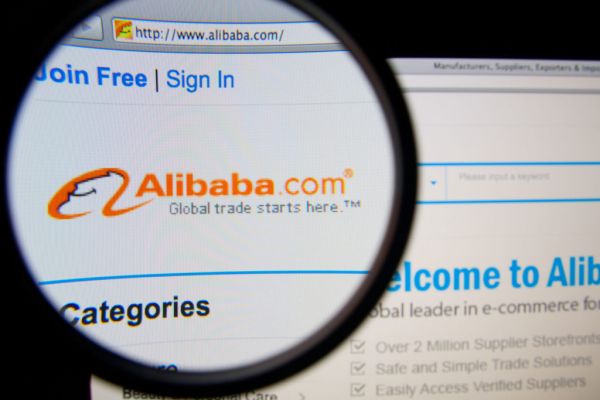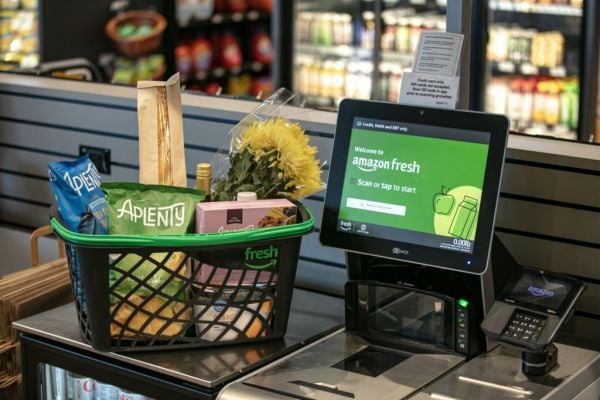Alibaba Group Holding Ltd raised its full-year sales forecast after quarterly results beat estimates, as Chinese spending stays strong and the company wrings revenue from fledgling areas such as cloud computing, entertainment and search.
China’s biggest e-commerce company increased its projection for fiscal-2017 revenue growth to 53%, from 48% previously. That may help assuage investors concerned that a deceleration in the world’s second-largest economy is curtailing Alibaba’s main online commerce business.
Despite a fairly stagnant user base of about 443 million, Alibaba benefitted from a record 11 November Singles’ Day spending spree and gained a larger share of online advertising from rivals such as Baidu, Inc. It also more than doubled sales from cloud computing in the December quarter. As transaction growth slows, Alibaba is generating more revenue from merchants by selling them services to draw in buyers, and expanding its Netflix-like entertainment arm.
“Investors will have a huge reaction to the revenue forecast raise,” said Ray Zhao, a Shenzhen-based analyst at Guotai Junan Securities Co. “The growth is mostly coming from the strong performance in Alibaba’s digital entertainment platforms, its ability to make money from cloud computing.”
Alibaba shares jumped in pre-market trading, after quarterly results came in above estimates. Sales rose 54% to 53.2 billion yuan ($7.8 billion) in the December quarter, topping the 50.1 billion yuan expected by analysts. Adjusted earnings per share came to 9.02 yuan, compared with estimates for 7.70 yuan. Net income climbed 38%, to 17.2 billion yuan, also outstripping the 13.6-billion-yuan average of estimates compiled by Bloomberg.
Chinese retail e-commerce revenue jumped 42%, to 40.8 billion yuan, in the quarter, driven by strong demand for the marketing services for which merchants pay. About 80% of that came from mobile platforms, where sales climbed 73%. The company is now also expanding into traditional retail, experimenting with technology to revamp a fragmented $4.8 trillion market.
For now, the company still derives most of its business from its home market, but Alibaba is aiming to attract a million small businesses in the US onto its platform within five years, hoping those entities will create one new job each. The initiative was brought up by chairman Jack Ma in a meeting with Donald Trump in January, as a means to display goodwill after the online emporium was again labelled a “notorious market” awash in counterfeits by the US Trade Representative.
Ma said as early as 2015 that the company wants more than 50% of revenue from outside of China. He also said in January last year he wanted to serve ten million small businesses abroad. That international drive entails spending on marketing.
Revenue from digital media and entertainment rose almost fourfold, to 4.1 billion yuan, bolstered by its online video service Youku and search through UCWeb.
Alibaba’s cloud unit remained one of its fastest revenue drivers, supporting the more than $17 billion of sales that flowed through its platforms during Singles’ Day. Revenue from the business more than doubled to 1.8 billion yuan last quarter, as paying customers rose to 765,000.
Like Amazon.com, Inc.’s AWS, the cloud service emerged from the enormous computational power needed to handle millions of online shopping transactions, but unlike its US counterpart, it enjoys home-field advantage in a vast Chinese market, where Internet-based computing is still novel to many enterprises.
Cloud could account for about 5% of sales this financial year, according to Evan Zhou, a Hong Kong-based analyst at Credit Suisse Group AG.
The company this month struck a deal to sponsor the Olympic Games through 2028, said to be worth $800 million. Alibaba will provide online computing services and data analytics for the sporting contest, while creating a marketplace for official merchandise and developing an online video channel for viewers in China.
“Brands and merchants spent more due to the shopping promotions on Alibaba this quarter,” Julia Pan, a Shanghai-based analyst at UOB Kay Hian, said before the earnings. “Alibaba is trying to offer more targeted marketing strategies for brands using Big Data and cloud-computing services, and also a one-stop solution, with its shopping sites and video-streaming platform.”
News by Bloomberg, edited by ESM. To subscribe to ESM: The European Supermarket Magazine, click here.














